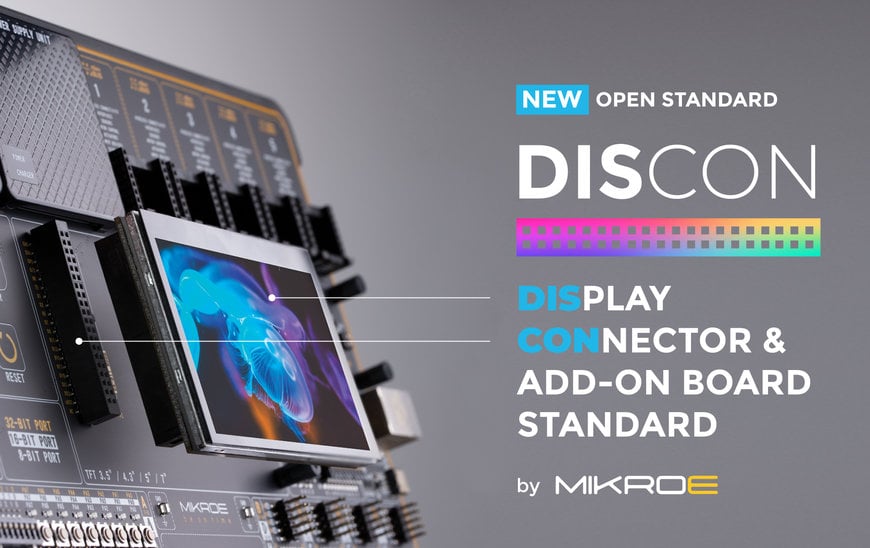electronics-journal.com
19
'22
Written on Modified on
New display connection open standard from MIKROE enables wide choice of display size and style, saving development resource
DISCON facilitates simple installation and replacement of any type of display on a development board.

MikroElektronika (MIKROE), the embedded solutions company that dramatically cuts development time by providing innovative hardware and software products based on proven standards, has announced a new open standard – DISCON – that defines both display socket and display board, facilitating simple installation and replacement of any type of display on a development board that carries the DISCON socket. By achieving the goal of a universal standard for display type add-on boards, months of wasted development time and money are saved and enormous design flexibility and scalability has been made possible.
“With DISCON, we are ensuring absolute compatibility between the development board and any of the supported displays, regardless of their size and type,” Comments Nebojsa Matic, CEO of MIKROE.
The DISCON standard specifies functional and æsthetic requirements that must be respected in the development process. This includes the physical layout of the display board, communication and power supply pins, the size and the shape of the display board, and the silkscreen marking conventions for both the add-on boards and sockets. It permits all sizes and styles of TFT display to be used – currently 3.5in, 4.3in, 5in and 7in units, and capacitive, capacitive with bezel, capacitive with frame, and resistive styles are supported.
The DISCON display board socket consists of a 2x20-pin connector with a proprietary pin configuration and silkscreen markings. The connector is a female 2x20-pin device, on a standard 2.54mm pitch. It may also have a polarization post for easier positioning of the display board. The pin-out consists of four different groups of pins – I2C, GPIO, data pins for the parallel data-port, and optional control pins - along with power supply pins.
www.mikroe.com

